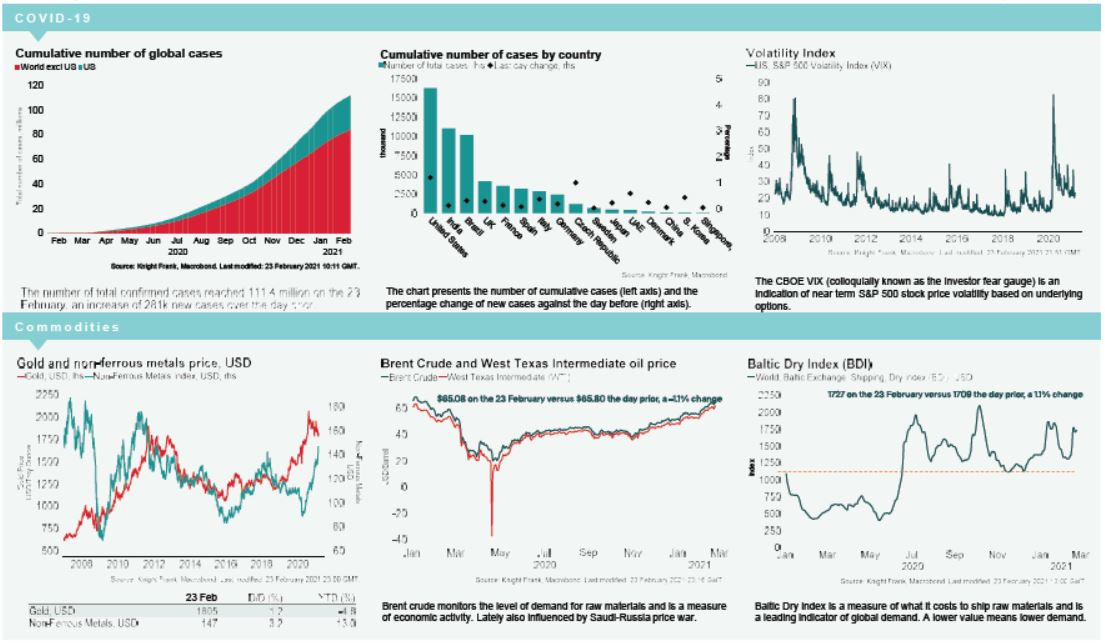Daily Economics Dashboard - 24 February 2021
An overview of key economic and financial metrics.
2 minutes to read

Download an overview of key economic and financial metrics on 24 February 2021 2020.
Equities: In Europe, stocks are higher, with gains recorded by the FTSE 250 (+1.1%), DAX (+0.7%), STOXX 600 (+0.5%) and CAC 40 (+0.2%) this morning. Meanwhile in Asia, the Hang Seng (-3.0%), CSI 300 (-2.5%), KOSPI (-2.4%), TOPIX (-1.8%) and S&P / ASX 200 (-0.9%) were all lower on close. In the US, futures for the S&P 500 are +0.1% this morning.
VIX: After decreasing -1% over Tuesday, the CBOE market volatility index is broadly flat this morning at 23.1, remaining above its long term average (LTA) of 19.9. Meanwhile, the Euro Stoxx 50 volatility index is lower, down -1.3% to 21.8, below its LTA of 23.9.
Bonds: the UK 10-year gilt yield has softened +4bps to 0.75%, while the US 10-year treasury yield is up +2bps to 1.37% and the German 10-year bund yield has held steady at -0.32%. The US treasury yield, UK gilt yield and German bund remain at their highest levels since February, March and June 2020, respectively.
Currency: Sterling and the euro have appreciated to $1.41 and $1.22, the highest they have been since January 2018 and April 2018, respectively. Hedging benefits for US dollar denominated investors into the UK and the eurozone are at 0.46% and 1.46% per annum on a five-year basis.
Oil: The West Texas Intermediate (WTI) remains above $60 per barrel this morning after increasing +0.5% to $61.95, while Brent Crude has decreased -0.8% to $64.88.
Baltic Dry: The Baltic Dry increased for the second consecutive session on Tuesday, up +1.1% to 1727. The index is currently -7% below the four-month high seen in mid January 2021. Prices have been pushed upwards by supramax rates, which increased to their highest level since records began in April 2017, according to Refinitiv.
German Economy: Strong exports and robust construction activity helped the German economy to increase by +0.3% in Q4 2020, higher than previous estimates of +0.1%. Full year GDP was also revised from -5.0% to -4.9% for 2020. The German budget deficit reached €139.6 billion or 4.2% of GDP in 2020, marking the country’s first deficit since 2011 and the second-highest since German reunification.